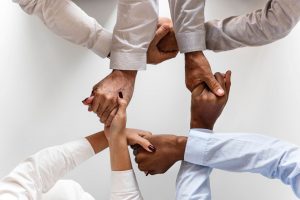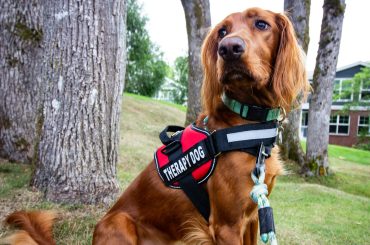
Many years ago, cultural competency was THE thing. It came after cultural tolerance and cultural diversity. The latest terms are cultural humility and cultural intelligence. I like those ideas. My first exposure to cultural training occurred in the 1990’s. I was taught about the history, rituals and foods of specific cultures. I thought there might be more to culture than that. There was.
I attended Racism of the Well-Intended, where Jim Wuelfing (white) and Art Woodard (black) discussed deep issues of race and ethnicity. I didn’t like it. In fact, it pissed me off. So I took the course again. It pissed me off again, however a door had opened in my mind. As they were fond of saying,
“I didn’t know what I didn’t know.”
I began to understand my white privilege. I am WASP – White, Anglo-Saxon, Protestant – a very privileged class in the United States. My roots go way back in England. My middle name is Alton, a derivative of John Alden who came over on the Mayflower. So my experience was (and is) far different than many people I connect with today. Now that I am acutely aware of my privilege, the question I must consistently ask myself is,
“How do I leverage my privilege for the greatest good?”
So why do I feel I am not competent? I have trouble being competent in my own culture. I rarely know the customs or the attitudes of the people who look like me and come from the same background. Many times, I don’t like them making it difficult for me to live among them. Is that competent?
Over my lifespan, I’ve had many experiences that showcased my lack of knowledge about certain cultures. Here are just a few.
- As a teenager on a basketball court in Bloomfield where I was only one of three white guys. The game stops when Donna Summer’s “On The Radio” blares from all the boom boxes and everyone but the white dudes are dancing.
- Having friends and colleagues from Puerto Rico.
- Two mission trips to Tijuana, Mexico.
- Staying in the home of a gay couple.
- Training the CCAR Recovery Coach Academy© in Hanoi, Vietnam.
- Having conversations from people of various ancestries, cultures and histories during our trainings.
The most impact on me personally regarding culture issues has been my relationship with Art Woodard. We have trained many, many weeks together. We have grown to respect, encourage, honor and admire each other. We have had many deep “conversations that matter” centered on racial identity. We both practice vulnerability. Because of our honest and open communication our relationship has matured. Dare I say we have grown to love one another?
This brings me to the first of two points.
1. I can never be competent within any culture. But I can be competent within any relationship. I think of all the cultures I am a part of today – the recovery community, family, church, work, kid’s sports, social media, Appalachian Trail lovers, cancer survivors, hikers, beachgoers and others. I can talk the talk; maybe walk the walk in some of them… but competence in each culture? Doubtful.
This is important in coaching recovery. How do I get beyond cultural barriers with the person I’m talking to? By being curious. By being vulnerable. By asking questions. I have used this query many times,
“I know very little about that. Could you tell me more?”
2. When the recovery community comes together, we are successful in accomplishing something that is rarely seen in the rest of society. The recovery community creates a culture that is competent enough to embrace us all.
Here are some examples where cultures have been created that are competent enough to embrace us all.
- At any recovery meeting (12 Steps, All-Recovery, SMART, Refuge, Celebrate Recovery, Wellbriety, LifeRing, etc), there is rarely any discussion on topics that would typically polarize people. In these meetings, they are not relevant. There is a higher call to healing, hope and love.
- At the usually quite diverse CCAR Recovery Coach Academy©, we open the week with a working agreement. By the end of the 5 days, lifelong connections have been made in large part due to the culture created.
- The cultural richness of the CCAR staff inspires me. On the other end, I have decreased attendance at my current church because the obvious lack of diversity saddens me. It is not reflective of my community or of my daily environment.
- At our most recent Multiple Pathways of Recovery Conference, we experienced an energy that was palpably spiritual. It connected us. It elevated us. Don Coyhis recognized this energy and likened it to breaking down silos – that we truly welcomed all people. Each pathway represented by each person is a cause for celebration.
Bill White summarized the Multiple Pathways of Recovery Conference experience by saying the values upheld in this gathering, in the expanding recovery community, holds the power to heal our world.
Phil’s note added 11.12.2018: Bill White (unbeknownst to me) distributed a blog on this same topic on the very same day. He says it way better than I. Read it here.
Let’s create cultures that are competent enough to warmly embrace us all.





